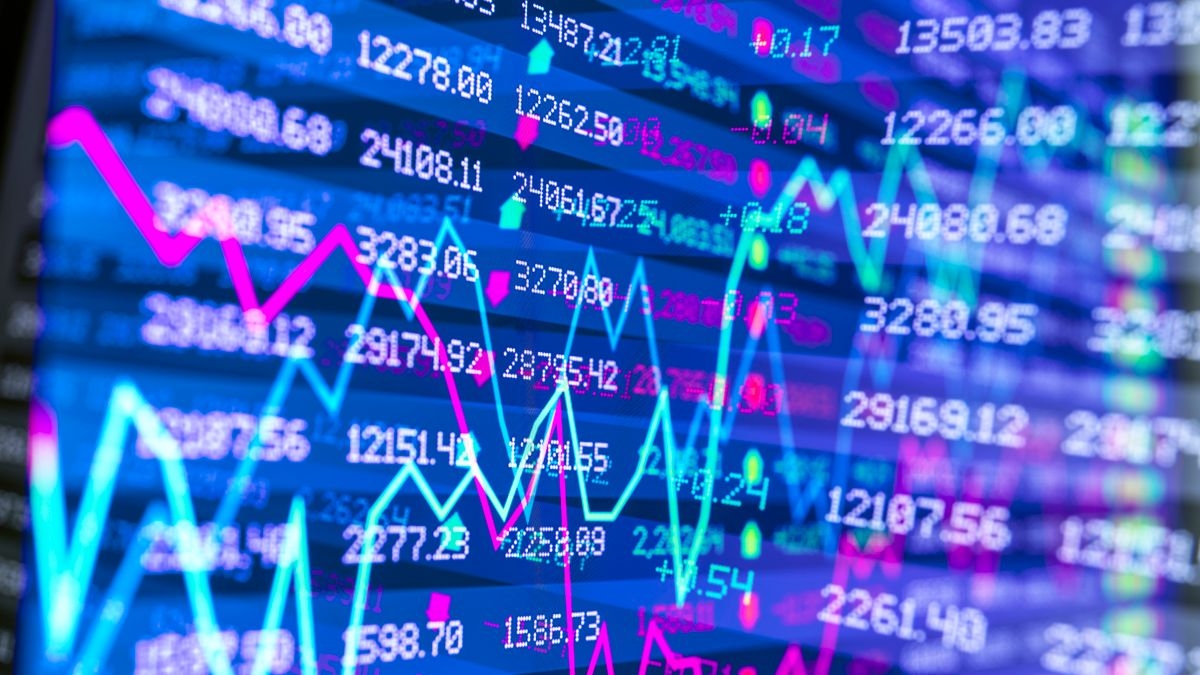Stock market: Dax starts the week on a positive note


Ups and downs on the stock market: The most important information on the Dax, Dow Jones, share prices and oil prices
Photo: Westend61 / Getty ImagesThe DAX had a positive start on Monday after a moderate week. However, the approaching deadline for a resolution of the trade conflict between the US and the EU curbed buying appetite. According to previous statements by US President Donald Trump , further tariffs on imports from the EU could come into effect this Wednesday if the EU does not accommodate him on trade issues.
In the first hour of trading, the German benchmark index rose by 0.4 percent to 23,873 points. This put it slightly higher than the 21-day moving average, which is important for short-term trends. However, it is still some way off its record high of 24,479 points, reached about a month ago. The MDax , the index of mid-cap companies, gained 0.4 percent to 30,411 points on Monday morning. The Eurozone benchmark index, the EuroStoxx 50, rose by 0.2 percent.
"Tariffs are once again at the center of stock market activity and will continue to make life difficult for the DAX," commented portfolio manager Thomas Altmann of Frankfurt-based asset manager QC Partners. "The stock market is speculating as to who the first twelve threatening tariff letters will be addressed to. And it cannot be ruled out that the EU will be among the recipients. The tariffs would be an immense burden, especially for the export-oriented European economies."
In the DAX, shares of Adidas , SAP , and Allianz are particularly in demand. German medical technology manufacturers Siemens Healthineers and Carl Zeiss Meditec, on the other hand, were among the biggest losers, with price declines of 1.5 and 2.3 percent, respectively, while Drägerwerk shares fell 0.5 percent. China is responding to EU restrictions by imposing counter-sanctions on EU medical devices. On June 20, the EU Commission decided to exclude Chinese suppliers from public tenders for medical devices valued at more than five million euros.
At Nordex , the recent consolidation continued after an interim high, falling 0.7 percent despite positive company news. An order from Brandenburg for the installation of turbines with a total output of 91 megawatts had provided some support before the market opened.
Otherwise, analysts' comments were also encouraging. Investors at the pharmaceutical and technology group Merck KGaA had to cope with a 1.8 percent share price decline and the company's slide to the bottom of the DAX. The investment bank Stifel lowered its price target significantly below the current valuation level and, after its previous buy rating, now issues a sell recommendation. Analyst Dylan Van Haaften justified his reassessment by stating that recent discussions with management have revealed significant risks of an early patent expiration for the MS drug Mavenclad (cladribine). Due to this burden, he says his estimates for 2026 are well below consensus.
Krones shares lost 2.3 percent following a downgrade. Investment bank Oddo BHF has downgraded its rating to neutral. The upcoming quarterly figures for the filling and packaging equipment manufacturer are unlikely to drive the share price.
A withdrawn buy recommendation from analyst firm Kepler Cheuvreux caused Aixtron shares to fall by 1 percent. The recovery in the chip manufacturer's key markets is likely to be slower and less certain than previously thought, wrote expert Ruben Devos.
In contrast, ProSiebenSat.1 shares benefited, gaining 0.8 percent, thanks to a buy recommendation from US bank JPMorgan. Expert Daniel Kerven recommends the company as "Overweight" and significantly raised its price target. He emphasized that industry consolidation and the recovery of the advertising market provide potential. At the same time, the media group's shares are protected from downside by share purchases by its major Italian shareholder , Media For Europe (MFE) .
The German stock market received less than encouraging signals from Asia. At the start of the week, the stock markets there slipped in early trading on Monday. Investors were confused after US Treasury Secretary Scott Bessent announced a new deadline for concluding trade agreements with the US. Shortly thereafter, US President Donald Trump confirmed that the higher import tariffs he had threatened for all countries without an agreement with the US would take effect on August 1.
"The market was waiting for details on the US tariffs. Investors wanted to refrain from buying stocks until the details were clear," said Shoichi Arisawa, general manager of the investment research department at IwaiCosmo Securities. In Tokyo, the 225-stock Nikkei index fell 0.5 percent to 39,628.41 points, and the broader Topix traded 0.4 percent lower at 2,815.36 points. The Shanghai Stock Exchange was almost unchanged at 3,468.82 points. The index of major companies in Shanghai and Shenzhen fell 0.5 percent to 3,963.50 points.
Oil prices came under slight pressure on Monday. A barrel (159 liters) of North Sea Brent crude last cost $67.88, down 0.42 cents. The price of the US WTI crude fell by 0.90 cents to $66.10.
The core countries of the OPEC+ oil cartel are continuing to open the oil tap. Production will be increased to 548,000 barrels per day in August, the oil association announced over the weekend. It currently stands at 411,000 barrels per day. The producers say this is a response to the stable global economic conditions.
In recent years, the eight member states of the cartel, including Saudi Arabia and Russia, had reduced their production by 2.2 million barrels. Since April, the group has begun gradually reversing these cuts. The most important OPEC+ countries are Saudi Arabia and Russia. OPEC's decision is likely to dampen price developments.
manager-magazin



